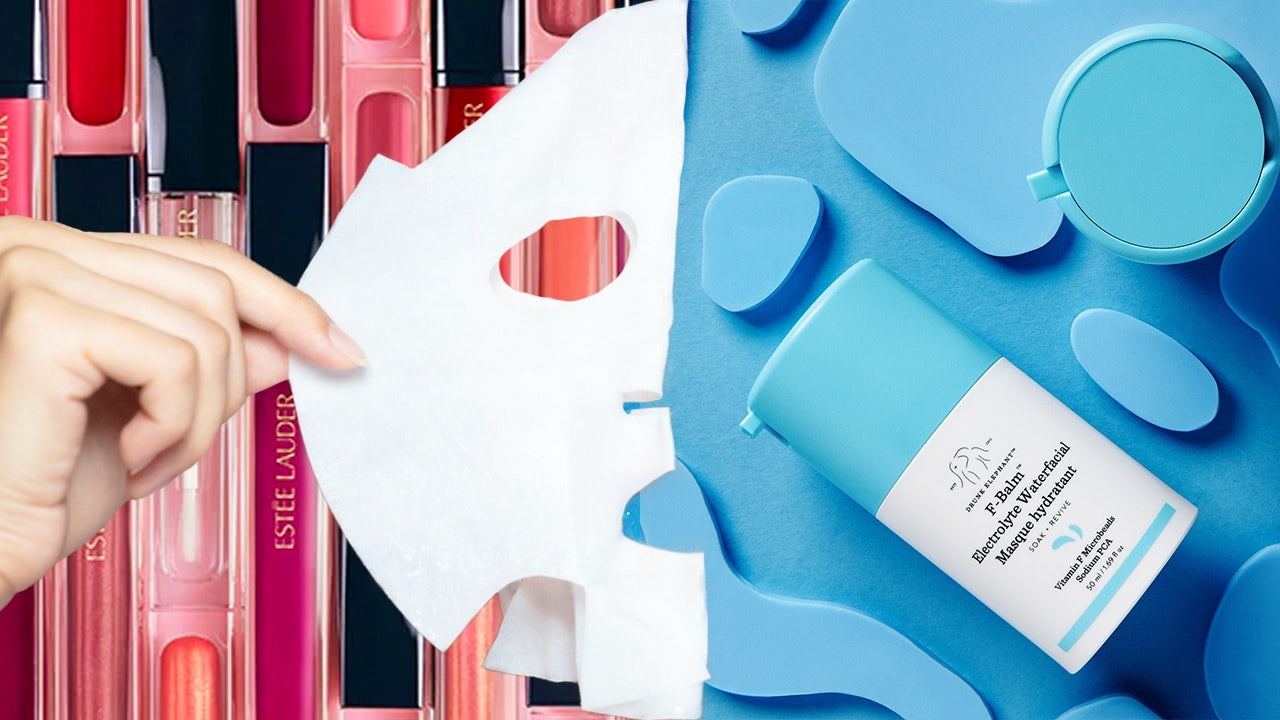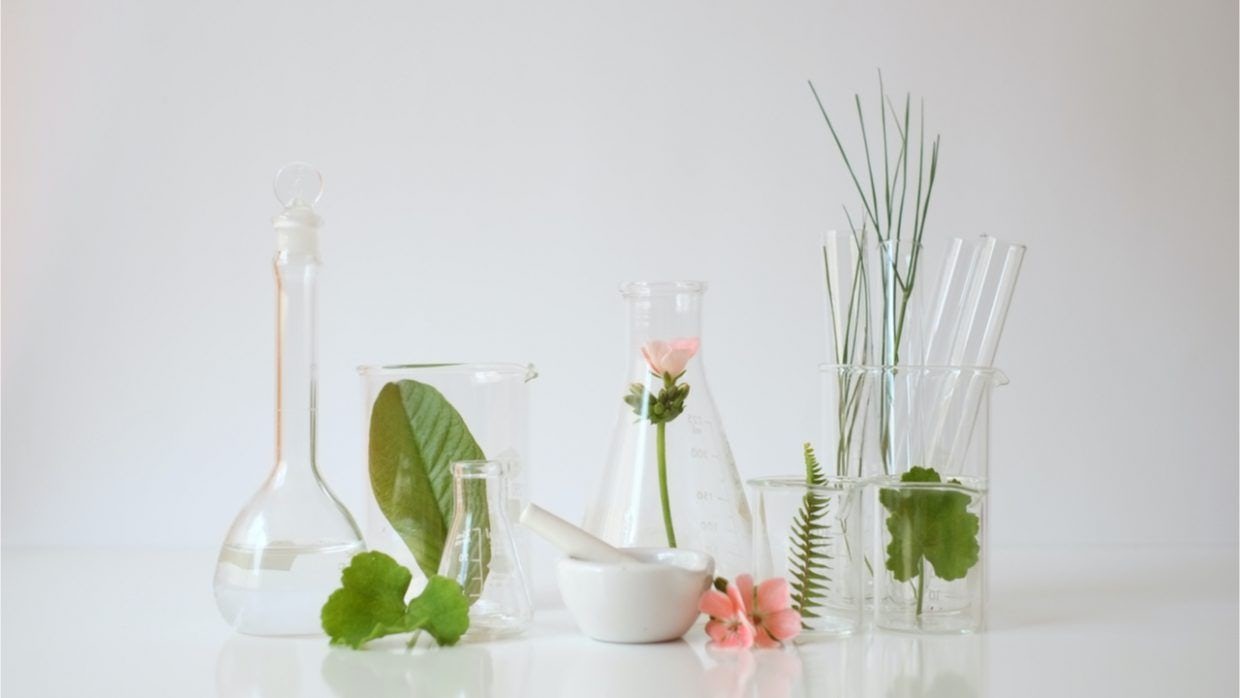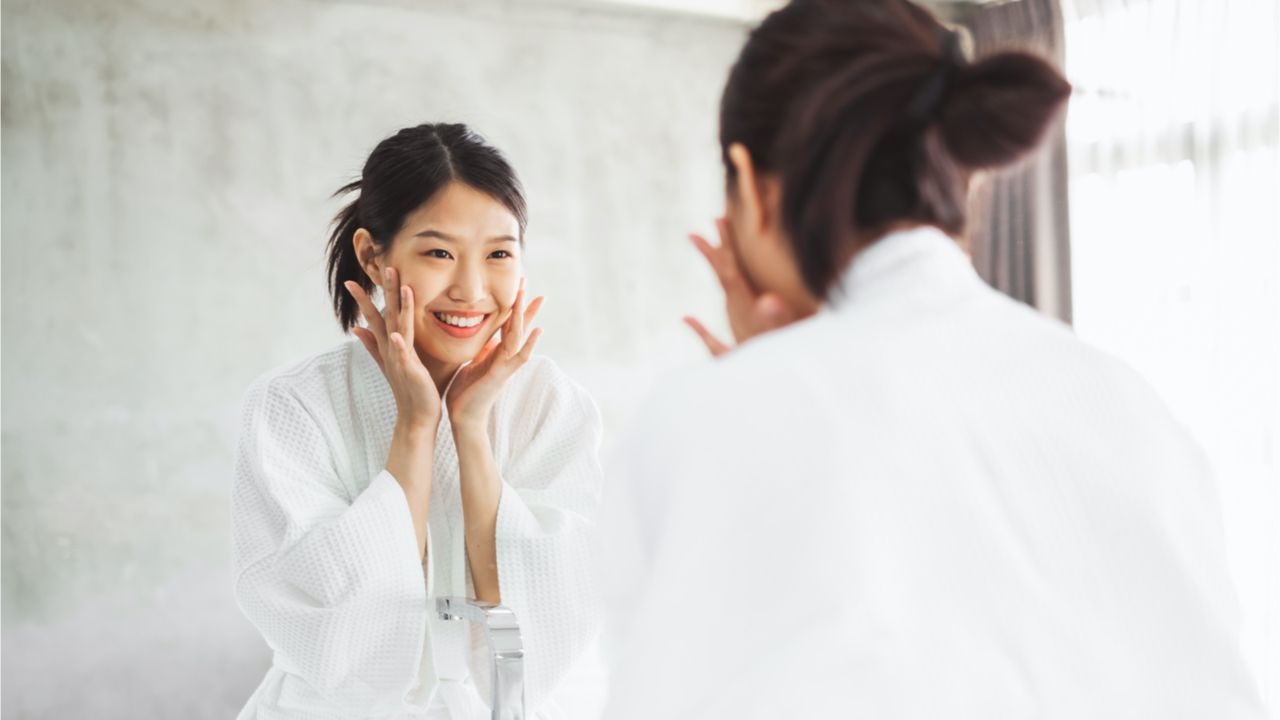For makeup consumers in China, the COVID-19 lockdown at the beginning of the year gave them a lot of time to reflect on past purchases. “The biggest change is that I spent far less on makeup than usual,” said Li Xinyi, a 22-year-old student at Peking University, two months after the lockdown was lifted. She added that, while at home, she had tried a lot of her unused products and has learned what is more suitable for her now.
As the whole of China was forced to stay home from January to March of this year due to COVID-19 (residents of Wuhan remained at home sometime longer), consumers’ daily beauty routines changed drastically: few wore makeup, as they worked and entertained from home, but many of them kept, and even doubled down, on their skincare routine. “Consumers have always had a strong demand for skincare because it’s part of their daily routine, that’s why it’s affected less than makeup products,” said Jiang Yali, senior analyst at market research firm Mintel.
Evidently, sales of skincare categories remained much stronger than makeup during the lockdown across different markets. Latest quarterly earnings from the Estée Lauder Companies showed that skincare had been more resilient than makeup from January to March, whereas sales of the latter category shed 22 percent compared to a year ago. The L'Oreal Group also noted on skincare's resilience in Asia Pacific in the latest quarter.
Now, as stores have reopened and people are back on the streets, will consumers go back to wearing as much makeup as before the lockdown? From consumers and to experts on the ground, Jing Daily explores the current state of skincare in China, and whether the market of makeup will rise up again soon.
From Facial Masks to “Clean” Products, Needs for Skincare Remains Robust#
Since the beginning of this year, pre-pandemic, 28-year-old consumer Ji Ruotong realized that she needed to put more effort into caring for her skin to prevent aging. At night, she followed a strict routine of removing makeup, cleaning, applying a toner from La Mer or Sisley, two kinds of serum (one for anti-aging) and finishing it off with a moisturizer. But during the lockdown, she added facial masks to her routine. “I usually use Fresh’s Black Tea spreadable mask when I wake up to reduce puffiness and use sheet masks before going to bed,” Ji said.
And Ji is far from the only one to add facial masks as part of their daily beauty routine. In fact, facial mask sales have soared in China during the lockdown. The category sold 2.2 billion yuan (310 million) on Taobao and Tmall in March, partly thanks to International Women's Day on March 8, a day in which brands rally women to pamper themselves, resulting in a 57% increase from February, Alibaba’s business intelligence platform Business Partner (生意参谋) reported.
However, a bigger trend has emerged during and after the COVID-19 lockdown, and that is selfcare. “The lipstick effect is probably going to be recategorized, where people will be buying more selfcare products.” said Julian Reis, CEO of the young Shanghai-based beauty and wellness incubator SuperOrdinary, while referring to the theory that people will be more willing to spend on less costly luxury goods during economic recessions. But whether it’s part of a daily beauty routine or a remedy, skincare’s momentum post-pandemic China remains strong.
“I think the skin care trend is always going to be the largest trend in China just because the consumer is very savvy,” said Reis. “The younger generation that's buying anti-aging products at the age of 15. So there's always going to be that demand,” His company, SuperOrdinary, which currently includes 14 brands with 50% of them in skincare, had a 60% increase from February to March, and a 20% growth from April to May. The company is now forecasted to reach 100 million sales this year, he said.
Another overachiever within the skincare category were “clean” products. Three of the best-selling products in SuperOrdinary’s online shop so far this year fell into this category. They were a translucent sunscreen from Supergoop; a “Green Clean” makeup remover from Farmacy, and a moisturizing cream from Drunk Elephant, one of the first clean makeup brands in the market.
Bought by Shiseido last October for 845 million, the emerging beauty brand Drunk Elephant is known for its essential oils, drying alcohols, silicones, chemical sunscreens, fragrances/dyes, Sodium dodecyl sulfate (SLS), which it has trademarked as “Suspicious 6.” The “clean” here connotes safe and high quality ingredients.
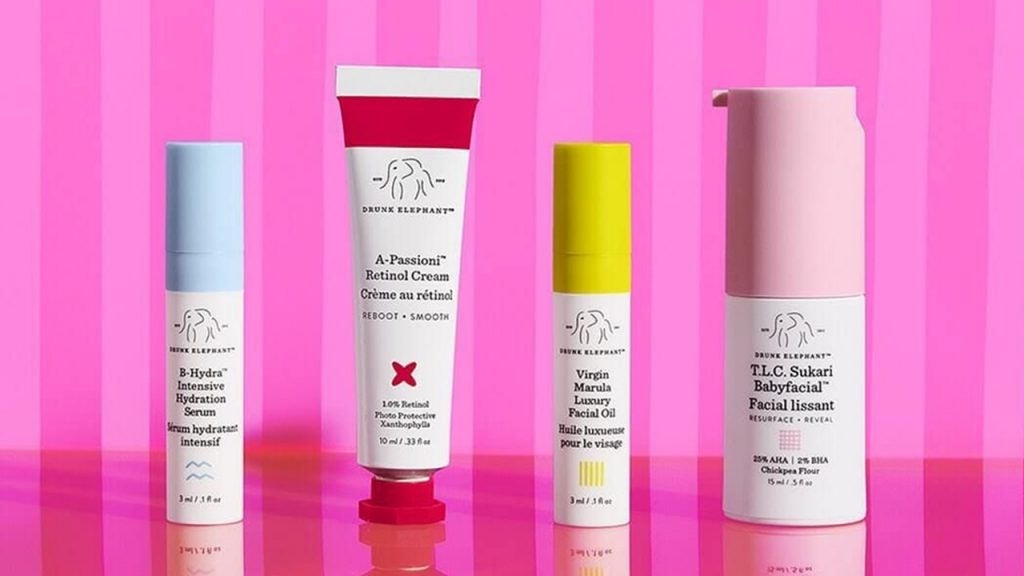
Jiang Yali, who authored Mintel’s Clean Beauty report, said that COVID-19 somehow made Chinese people care even more about “clean” ingredients. “Our research shows that 80 percent of consumers prioritize safety when they choose skincare. After COVID-19, the trend is getting stronger, and we tend to see more marketing including vocabulary such as made for sensitive skin, no additive, no harmful ingredients.”
Part of the reason for this laser focus on ingredients might be medical. As a must to prevent COVID-19 from spreading in public, N95 and one-time face masks have become a necessity for people’s everyday life during and after the lockdown. Given this, many people started having increased skin conditions like acne, rosacea, and hives. So much so that the director of the skincare department at Wuhan No.1 Hospital told a local media that people should moisturize their skin frequently and wait for the skin to dry before putting masks on. At the same time, some Weibo users shared their remedy via social media. User @xiaxiarabbit, for example, posted three stacked Estée Lauder-owned La Mer moisturizing cream cases, stating that it cured her “face mask face.”
On The Road To Recovery, Consumer Sentiment Outweighs Stimulus#
While at home during the lockdown, many consumers first used all of their current products. “I used up my facial cream from Clarins during the few months of lockdown, so I replenished in April,” said Shi Mengjun, 29, a small business owner and a resident in Guangdong Province, adding that she hasn’t bought any new makeup products this year as she rarely sees her clients.
While it’s still too early to gauge the recovery of the cosmetics category from companies’ earnings report, the cosmetics market, including skincare and makeup, has seen an overall comeback. “The real growth of cosmetics started in April, which includes the import volume of makeup and personal care products,” said Mintel’s Jiang. According to the National Bureau of Statistics, Chinese consumers spent 22.4 billion yuan, or 3.5 percent more, in April, compared to the same period last year. It’s a significant rebound after a 11.6% slump of national cosmetics spending in March compared to year-ago.
All signs are leading to a recovery but pinning down a timeline is hard. “Now the majority of the stores have reopened, and there’s multiple stimulus from local governments, we do see a recovery, but it’s hard to say when cosmetics sales will go back to where it was,” Mintel’s Jiang said. In Shanghai, where her office is located, the municipal government unprecedentedly opened the Double Five Shopping Festival to encourage consumer spending, as Jing Daily previously reported.
As the curtains opened for the inaugural Double Five Shopping Festival, Shanghai also launched the month-long Global New Products Debut Season and Shanghai International Cosmetics Festival (SICF), running until June 9, which marked a rare joint appearance of government officials and cosmetics business leaders. Cosmetic brands under LVMH Group, Kering, and Richemont are among some 40 local and Western companies that vowed to offer Chinese consumers a taste of their new products before any others in the world. In the first 24 hours, cosmetics sales in the city's online and offline channels surpassed 15.6 billion yuan (US2.19 billion), local media Shanghai Daily reported. Results — whether good or bad — are expected to come out next week after it wraps up.
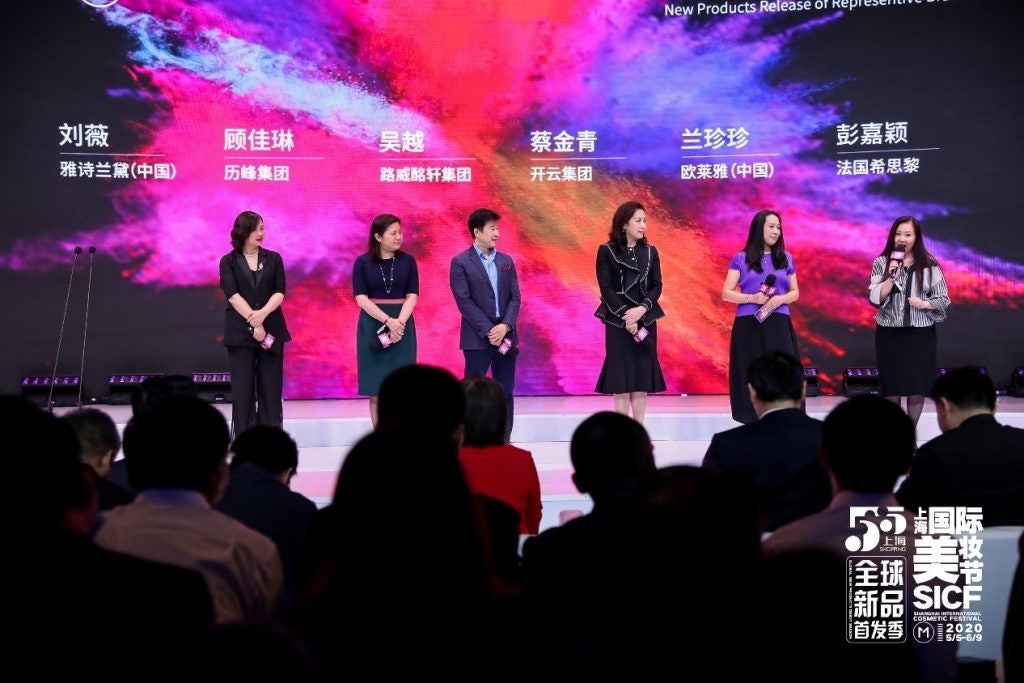
In the meantime, as e-commerce giant JD.com’s mid-year shopping bonanza 618 got underway this past Monday, with brands like Lancôme, SK-II, and Olay are offering competitive discounts, compounding on the vouchers from the platform. Will all these measures from the government and retailers get people to open their wallets? “We are seeing consumers become more careful about their spending,” Jiang said. “Even if they have the money to spend, even if their finance hasn’t returned to pre-COVID-19 amounts, whether they are willing to spend it is yet to be seen.”
Cosmetics giants, including L'Oreal and Shiseido, remain confident in Chinese consumers' spending power. "[The COVID-19 pandemic] does not call into question consumers’ strong appetite for beauty products, which remains intact. The market should recover quickly as soon as measures to close sales outlets are lifted," L'Oreal noted in the latest earnings release in April. As for Shiseido, while marking China as the "growth engine" in the Q1 earnings call, it told Jing Daily on Thursday that the group is seeing recovery sign of makeup products.
For now, at least Li, the student from Beijing, doesn’t want to splurge on makeup. “I felt that the COVID-19 pandemic has shifted my attitude towards consumption, now I’d prefer to spend money on skincare,” the owner of many items from Charlotte Tilbury and Shiseido-owned NARS said.
